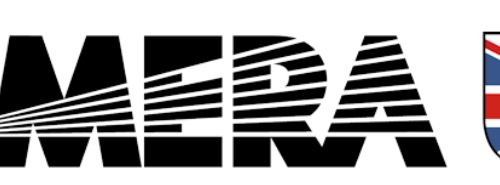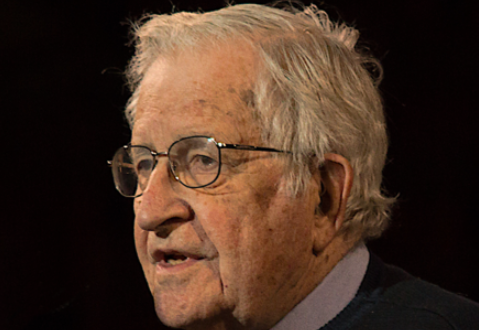Oliver Kamm has a piece up about the banning of Douglas Murray from chairing a debate, the subject of which is ““Islam or Liberalism: Which is the Way Forward?” between the Tory academic, Alan Sked, and the (very right wing) Islamist evangelist and Greek ‘revert’, Hamza Tsortzis.
Our political views on immigration, economics, Europe and numerous other issues are miles apart; and again, that is completely irrelevant to the case.
The LSE’s conduct is cowardly and unconscionable. A university is a place for the untrammelled discussion of ideas. The LSE has curtailed the ability of one invited guest to contribute to a discussion – as chairman of a debate and not even as a speaker – because of a presumed threat of violence arising from the offence he might thereby cause. I’ve seen the LSE’s internal correspondence on this. It refers to complaints made about Douglas’s views on Islam. It seems that Douglas has been disinvited because of the effect on the sensibilities of students – or on “campus relations”, as one particularly arch piece of misdirection has it – at a time of Middle East conflict.
This is precisely where I stand too.
Tsortzis’s blog is a treasure trove of offensive opinions. That is unsurprising: I am told that he is a member of the clerical fascist group Hizb ut Tahrir.
It is, however, absoutely unthinkable that he would be banned from the LSE. Nor should he be.
The LSE has shown, twice this week, that is is cowed by violence and threats of violence. So, if you want to push the LSE around, that’s all you need to do.
Its values are tissue-thin, and in shreds.
UPDATE
Here are two accounts from an “LSE Mole” in the comments below. They are difficult to reconcile with each other:
Murray was invited by Alan Sked to chair the meeting last Friday evening. On Wednesday night he was disinvited for safety reasons. But LSE says it was because his impartiality was questioned by ’some students’. LSE thought he had ‘agreed to stand aside’. LSE denies that the StopTheWar students who were occupying The Old Theatre made Murray’s disinvitation a condition for ending the Occupation. On Friday the Occupation ended. At very short notice (90 minutes before the meeting) Murray was reinvited. But by that time, he had made other arrangements. LSE say he was reinvited when they became aware that he had not ‘agreed to stand aside’.
Some background: Hamza Tsortzis is thought to be a member of Hizbut Tahrir. When Douglas Murray spoke to LSE Jewish Society last year, there were strong objections from the Islamic Society. In the event LSE resisted pressure to disinvite him.
And then there’s an LSE Press release:
A member of the faculty of The London School of Economics and Political Science invited Douglas Murray, director of the Centre for Social Cohesion, to chair a debate on Friday 23 January on ‘Islam or Liberalism: Which is the Way Forward?’ In the days leading up to the event, LSE understood that he had agreed to stand aside. When it became clear that this did not appear to be the case, the School informed Mr Murray that it was happy for him to resume the role of chair. Although Mr Murray was not able to take up this offer, the event took place successfully in his absence. Douglas Murray has not been “banned” from speaking at LSE. Mr Murray has spoken at the School on two recent occasions and would be welcome to speak here in future. A few people objected to Mr Murray’s presence in advance of his previous appearance but LSE upheld his right to speak.
So, which one is true?
UPDATE 2:
Here is the email sent to Douglas Murray by the LSE:
“I have been asked by the Pro-Director, Prof. Janet Hartley, to request that you stand down as chairman of the debate on Friday evening. Part of the School has been occupied by student protesters on account of events in Gaza and there is official concern that on this account your presence might provoke further unrest.”
Why the LSE thought that Douglas Murray had agreed to step aside is unclear.
However, why Douglas Murray thought that the LSE had disinvited him is also unclear to me.
Somehow a “request” that he step down was understood by Douglas Murray as a ban. Somehow the LSE came to believe that Douglas Murray had agreed to absent himself.
Can anybody help?



Murray was invited by Alan Sked to chair the meeting last Friday evening. On Wednesday night he was disinvited for safety reasons. But LSE says it was because his impartiality was questioned by ’some students’. LSE thought he had ‘agreed to stand aside’. LSE denies that the StopTheWar students who were occupying The Old Theatre made Murray’s disinvitation a condition for ending the Occupation. On Friday the Occupation ended. At very short notice (90 minutes before the meeting) Murray was reinvited. But by that time, he had made other arrangements. LSE say he was reinvited when they became aware that he had not ‘agreed to stand aside’.
Some background: Hamza Tsortzis is thought to be a member of Hizbut Tahrir. When Douglas Murray spoke to LSE Jewish Society last year, there were strong objections from the Islamic Society. In the event LSE resisted pressure to disinvite him.
And then there’s an LSE Press release:
A member of the faculty of The London School of Economics and Political Science invited Douglas Murray, director of the Centre for Social Cohesion, to chair a debate on Friday 23 January on ‘Islam or Liberalism: Which is the Way Forward?’ In the days leading up to the event, LSE understood that he had agreed to stand aside. When it became clear that this did not appear to be the case, the School informed Mr Murray that it was happy for him to resume the role of chair. Although Mr Murray was not able to take up this offer, the event took place successfully in his absence. Douglas Murray has not been “banned” from speaking at LSE. Mr Murray has spoken at the School on two recent occasions and would be welcome to speak here in future. A few people objected to Mr Murray’s presence in advance of his previous appearance but LSE upheld his right to speak.
So, which one is true?
UPDATE 2:
Here is the email sent to Douglas Murray by the LSE:
“I have been asked by the Pro-Director, Prof. Janet Hartley, to request that you stand down as chairman of the debate on Friday evening. Part of the School has been occupied by student protesters on account of events in Gaza and there is official concern that on this account your presence might provoke further unrest.”
Why the LSE thought that Douglas Murray had agreed to step aside is unclear.
However, why Douglas Murray thought that the LSE had disinvited him is also unclear to me.
Somehow a “request” that he step down was understood by Douglas Murray as a ban. Somehow the LSE came to believe that Douglas Murray had agreed to absent himself.
Can anybody help?